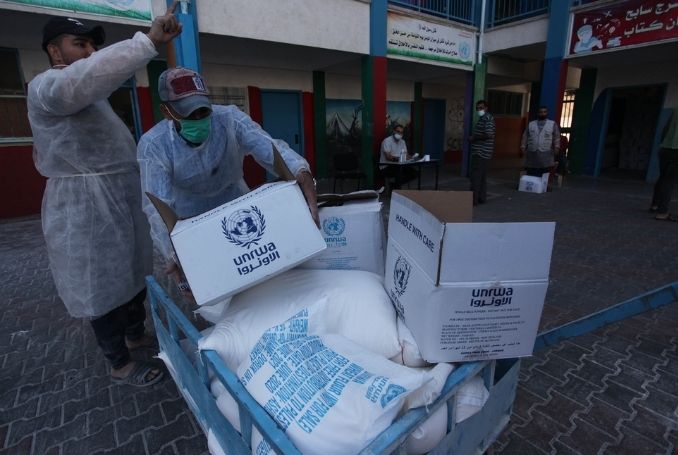
In a dramatic escalation of the humanitarian crisis in the Gaza Strip, the Israeli Broadcasting Corporation (KAN) has confirmed that the Israeli military destroyed over 1,000 truckloads of humanitarian aid intended for Gaza’s beleaguered population. The aid, which included vital food and medicine, was reportedly destroyed due to alleged failures in the distribution mechanism within Gaza, according to Israeli military sources.
This revelation has sparked global outrage as the region faces what many experts are calling an unprecedented famine. The entire population of the Gaza Strip, over 2.3 million people, is suffering under the weight of a prolonged conflict, siege, and deliberate starvation policies that have persisted for over 21 months.
Mounting Humanitarian Toll
Reports from within Gaza paint a grim picture of daily life. Residents are resorting to desperate measures to survive, including consuming animal feed, grass, and scavenged weeds. Basic foodstuffs have become scarce, and hospitals are overwhelmed with cases of malnutrition, particularly among vulnerable groups such as children and the elderly.
According to the Ministry of Health in Gaza, 122 people, mostly children, have died from starvation-related causes. Recent statistics indicate that 11.5% of children are suffering from severe acute malnutrition, a rate deemed catastrophic by global health standards. Aid organizations warn that these figures likely underestimate the true scope of the crisis due to the collapse of healthcare and monitoring systems.
“There are thousands of parcels left under the sun, and if they are not transported to Gaza, we will be forced to destroy them,” admitted Israeli military sources.
International Condemnation and Calls for Action
The destruction of these aid supplies is not an isolated incident but part of a broader pattern of obstruction. Israel has maintained a blockade on Gaza for nearly two decades, with conditions worsening significantly since the onset of the current conflict. International NGOs and UN agencies have repeatedly accused Israel of blocking or delaying aid shipments, leading to the spoilage of essential supplies at crossing points.
UN Special Rapporteur on the Right to Food, Michael Fakhri, condemned Israel’s actions in a recent interview with Al Jazeera, calling for immediate sanctions. “Condemnations are not enough. Israel is obstructing the entry of aid, which is piling up at the borders in full view of the world,” he stated.
“We need sanctions now,” Fakhri emphasized, highlighting the urgency of breaking the blockade to deliver urgent relief.
Global Protests and Diplomatic Pressure
Public anger has erupted worldwide, with mass demonstrations taking place in major cities such as London, New York, Paris, Istanbul, and Johannesburg. Protesters are demanding an immediate ceasefire, an end to the blockade, and full, unrestricted humanitarian access to Gaza.
This development comes as the Israeli government faces increasing diplomatic isolation. Human rights organizations, including Amnesty International and Human Rights Watch, have accused Israel of using starvation as a weapon of war. A growing number of legal scholars and UN officials argue that Israel’s actions may constitute a violation of the Genocide Convention and international humanitarian law.
Deflecting Responsibility
Despite the mounting criticism, Israeli officials continue to deflect responsibility, attributing the failure to distribute aid to the collapse of Gaza’s civil infrastructure. This stance overlooks the fact that much of the infrastructure was systematically targeted and destroyed by Israeli bombing campaigns.
As the humanitarian crisis deepens, the international community’s calls for accountability and action are becoming more urgent. The situation in Gaza remains dire, with millions of lives hanging in the balance as the world watches.





